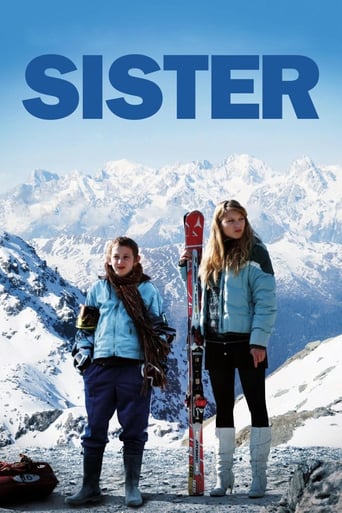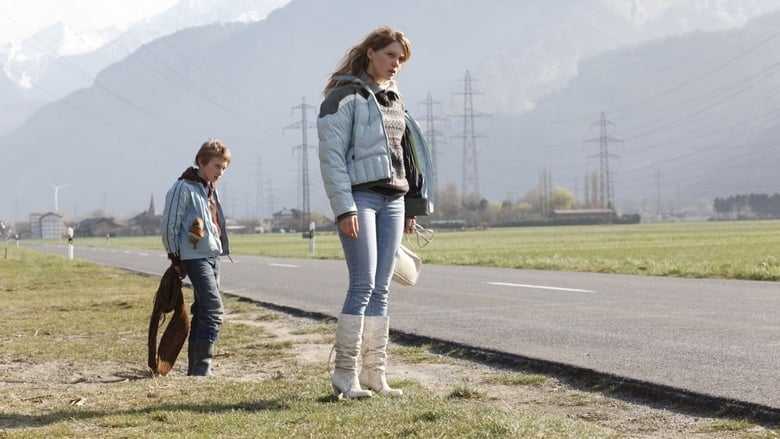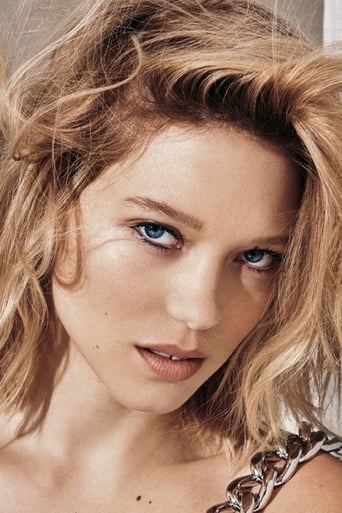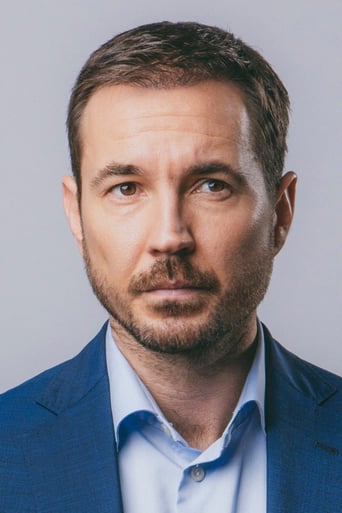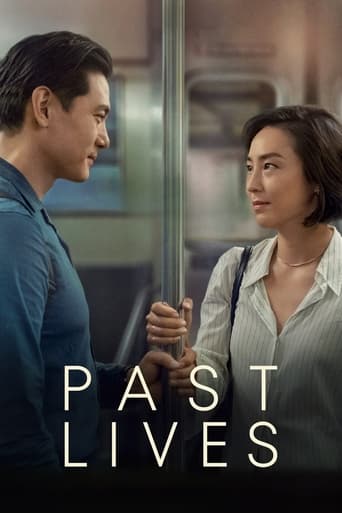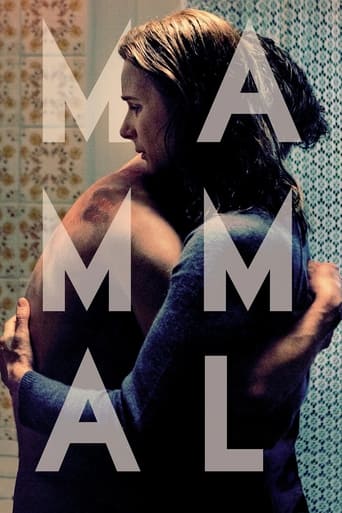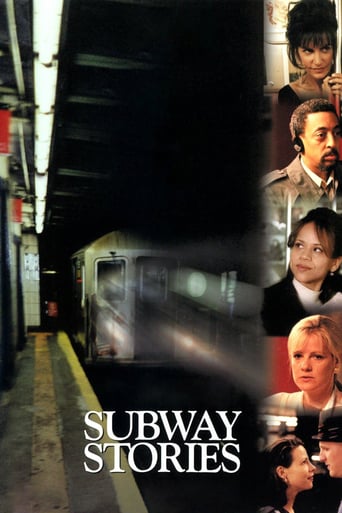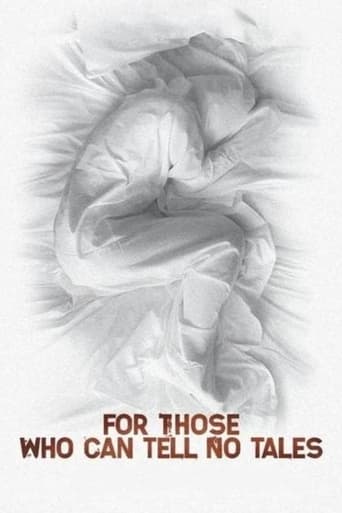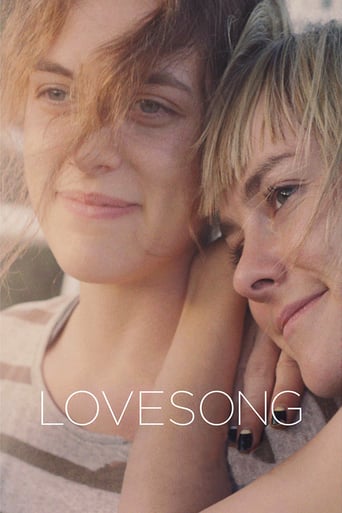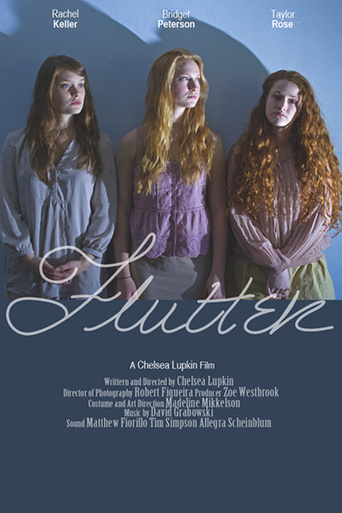Sister (2012)
A drama set at a Swiss ski resort and centered on a boy who supports his sister by stealing from wealthy guests.
Watch Trailer
Cast


Similar titles
Reviews
I like the storyline of this show,it attract me so much
Don't listen to the negative reviews
It is not deep, but it is fun to watch. It does have a bit more of an edge to it than other similar films.
The storyline feels a little thin and moth-eaten in parts but this sequel is plenty of fun.
Although everything in the plot is very easy to understand, everything is explained and self-explainable, it is still hard to say what it all is about, but this is the asset of this film. The plot is taking place in a posh, expensive Swiss ski resort, which, of course, implies the other side of the coin: the everyday life of actual inhabitants of the little settlement, who live in a boring building beneath the mountain. The story starts right away with Simon, 12 year old boy, premature for his age, who steals the expensive equipment whereas finds it unattended, and resells it for cheap money to anyone interested, so that he can support himself and his problematic older sister, who keeps changing men and cannot keep the job. Although the plot takes place in Switzerland, one of the wealthiest countries in the world, where even poor or unemployed people live relatively well, it is still interesting that there are many people ready to buy apparently stolen goods if they see an opportunity to make or save money.This is not really a social drama, because we cannot see financial or bureaucratic reasons for Simon and his sister to live such a delinquent life. On contrary, it seems there are much easier ways for both of them to make the money, than to sell stolen goods.. However, living such an illegal life seems to be a mode they both accepted in order to prove something to each other or to punish themselves , or challenge the traumas of their lives, which will be revealed in the second half of the film. The film is slowly and almost invisibly developing into the resolving narrative mode, so its definitely not boring to watch. The social dimension of the film is, hence, not about the finances or material issues. Its more about the alienation among humans and ignorance towards the children, which simply does not even reflect the social status. The little Simon is passing by completely unnoticed for most of the time, wandering around the posh ski terrains, cafes, restaurants, because nobody really cares for children, nobody bothers to pay attention to the other human being. Most of the people, both guests and workers, are just visitors, in passing by, nobody cares to check up on him, or call authorities or anything. Simon is not the only child there who often wonders completely unattended. The appearance of the rich English woman, with a proper family, is more like a dream for Simon, like a proper mother he has never had, but she is not real for him, either, and the illusion is just the illusion. The acting of both leads is interesting. Film shows the development of the Simon from the boy who is a victim, and who steals to buy food, to a little criminal who at certain point simply can't resist stealing, although he does not have the immediate need for that, towards the end of the film. As for the Lea Seydoux, who plays the "sister", the role that will stay little mysterious almost till the very end, somebody has written here already that she is simply too pretty, or too young, or fragile to fit this story. I disagree with that, on contrary, the row instinct is often hidden within the fragility and prettiness, and her acting is all contained in her face which is at the same time beautiful like a doll's face and wild and cruel to the unthinkable measures. In a word, both actors deserve a praise, together with director.
Some films just can't be improved, this is one of this rare class. Like Lorna's Silence and of course the Dardenne bros, we've got the sociological view of the poor and alone among the rich and powerful. This alone is better than most of what is filmed, but what makes this gem stand from the crowd? The story is powerful, never faltering, and yet without low blows. And with the classic "slow/ ethnographic" moments that have make "French film" famous or infamous, according to tastes :).Simon steals the movie, and that's no small feat given the other main character is Léa Seydoux, probably too pretty for the role, but so well "dressed" and such a good actress that you almost never see in her the "Cannes Star" one is expecting, only a beautiful woman who happens to be poor and with an awful taste for men."Mike", "Christin" (the classy blonde) and J. F. Stévenin's baddie teach us in one lesson that whoever's got money or power, even if just a bit more than you, will probably humiliate you as soon as he/ she can.This is a film probably only understandable for those of us who've been thou hard times, economically as well as socially (notice Louise and Simon have no friends, S. may have one client and then an unlikely sidekick, and Louise has her "men" but they have no social life, no "life" beyond "pasta and toilet paper" as Simon wryly says to Mike as to what he does with the $ he gets from his thefts.Simon has some points in common with Truffaut's 400 blows, as Argentine critic Diego Battle aptly writes. He's so chillingly natural that we only hope he can be as good as J.-P. Léaud, or even better! Léa, from "La vie d'Adéle" (Palme d'or at Cannes 2013') has a feline beauty as well as some "hidden anger" that suits our character perfectly. I never understood how she spends her money so quickly, as we may understand she gets money from hustling, also from Simon, and yet she's always broke.Agnès Godard makes magic with the greyish-white Alpine settings, always showing how harsh weather may be warm compared with the people down there. You may not be eager to go to skiing after having watched this masterpiece! John Parish's music is hypnotic and costume design are perfect. Everything in their house is ugly, like poor Simon's tacky bed sheets. (This reminds me of Lorna's silence, whose winter clothing always looked bad on her, herself a beautiful woman). Even when they but something brand new, it doesn't work as supposed, like the oven Simon wanted. Everything that enter the house sort of gets "soiled". They are always washing clothes. The ending's got a clear symbolism, I owe this to IMDb reviewer Dan Frazen. My favourite scene is Simon and his young apprentice stealing kid's wallets, leaving aside the toys with cool efficiency, complaining when "they only have coins" and flushing all what they don't want down the toilet.I'm eager to watch Ursula Meier's debut, "Home". I am sure she'll keep up the greatness.
Ursula Meier's "Sister" is not an easy film. A boy, Simon, survives in the fringe of a mountain –and of society-, stealing from the visitors of a skiing resort. His only companion, quite unreliable, is an older sister, Louise, whose ups and downs force Simon to act way above is age. We don't know anything about how they ended up in this situation, though at midpoint of the film we'll learn the truth of their relationship. The background and the weather are as cold and unpleasant as the relationships portrayed, while the deadpan style of the film makes not a single concession to sentimentalism. Under these premises, Meier has built a forthright movie full of subtleties: not an easy film, but utterly rewarding.Other reviewers here have already pointed out the duality of this high/low setting, brilliantly used by Meier. It mirrors the class distinction, of course, and their respective environments: the white, unspoiled snow on top of the mountain for those with money, against the melted mud on the hillside where the underprivileged survive. Simon, however, doesn't look for the wealth of the mountaintop. Surely, he strives for an improvement in his life, but his stealing is merely practical –he needs to buy food, toilet paper-. No, what Simon yearns for is tenderness, for a caring mother, for a life in which (the lack of) money doesn't spoil relationships. Downtown, Simon has to be on permanent watch out; up in the resort, he can still pretend to be a kid.This fight against loneliness drives both siblings. What Louise cannot find in Simon, she looks for in random boyfriends. What Simon cannot get from Louise, he tries to get from a woman he stalks at the resort. However, those relationships are built upon lies that hurt each other, driving them further apart.Needless to say, Simon won't fare well; eventually, his pretense falls when the woman he wants as a mother finds him cleaning her cabin: Simon can't any longer hope to be her son if he is just a chalet bellboy. To make things worst, he's caught stealing the woman's wristwatch. Was his stealing a betrayal, a payback for her rejection? Or was he taking a souvenir, a keepsake of the mother he lacks? It comes to my mind a little essay by Jean Genet, "L'Enfant criminel" where the author points out the symbolic value of the crime's object in the mind of the young criminal. It is not surprising, therefore, that the watch he has stolen is found on his crotch. Still following Genet, what turns someone into a thief is not the act of stealing, but the word "thief" directed at him. The word, the injury, is what creates the separation from society, a separation that will lead to the development of a criminal moral and the eventual transformation into a thief. Simon struggles to elude this process, while at the same time is doomed to it.At the end of the film Simon returns downtown, accepting the place where he belongs. There's no other possible direction for him: once that the snow melts at the resort, there's no tenderness to be found there. Probably, as one character says, Simon will steal bikes through the summer. Nothing has really changed for him; he'll keep surviving at the margins of society. But, in this hopeless ending, there's the hopeful note too. Simon is going down, yes, hanging inside a cable car, when he crosses another cable car that goes up. His "sister", obviously worried, calls for him. These siblings, after all, do care for each other, and that's something that the lack of money cannot change. They are not alone.
I saw this film in the Berlinale film festival 2012, where it was part of the Competition section. It tells about an intriguing situation with a brother and a sister living together. Both have very uncommon ways to pass the time, each having their own survival strategy. We are left in the dark for a long time how all that came about.I especially admire the role of 12-year old Simon, who shows versatility, skills and experience in his daily "job" of stealing ski's and related material from well-to-do tourists in the ski resort, in order to re-sell it later on to less wealthy people in the village. He acts as a real professional, and knows everything there is to know about equipment brands and related market prices.The "sister" role, on the other hand, gets a bit on my nerves. She is utterly useless in earning a living, nor is she capable of running an orderly household. She's easily distracted when a man (any man) is around, and often leaving in the company of a lover, each time a different one. I'm not completely sure how to characterize her way of living together with Simon as either symbiotic or parasitic.Halfway the movie it turns out that the relationship between Simon and his "sister" is completely different from what he tells everyone (and us) asking about their parents. What we (and everyone) are led to believe all the time, is the explanation that is easiest accepted by everyone asking for details. Their behavior does not change after the revelation about their true relationship. But of course it changes our view on the situation drastically from that moment on.The film ends when the skiing season is nearly over, and all tourists are about to leave. Unclear remains what their income will be as of this day. We see them in a ski lift: Simon is going up and she is going down. Does this mean anything? A pointer? Seems like a deliberate open ending, and I must admit that I cannot think of a better way to wrap up this story.All in all, Simon is the real main character, and he certainly is a person to get involved in. We follow him closely on his "job", feel with the risky situations he finds himself in, just as we are happy with each of his narrow escapes. Though the "sister" keeps annoying me all the time, she is the second main character who is also very well portrayed. Though we see many other characters appear, all of them are mere side roles. Nevertheless, they are also performing very well in their assigned roles.

